This article originally appeared in the May 1992 issue of Perspectives: A Journal of Reformed Thought (http://perspectivesjournal.org.) It is republished her with permission of the author and the journal.

I have this vivid memory of the uncertainty I felt sitting in First Presbyterian Church of Chicago at a Presbytery meeting before making my candidacy statement for ministry some twelve years ago. We were sitting in this neo-Gothic structure, a relic from the church’s past glory, a solitary old building amid urban blight, hosting elders and pastors who frankly looked much more concerned about the safety of their vehicles than about the agenda of the meeting. And here I was, an African-American man from a southern, working-class family only one step from poverty, in this church located in a poor African-American community, seeking to come under the care of a Presbytery that represented a denomination whose membership was 98 percent white middle to upper middle class.
At that moment it was clear to me that as an African American I had accepted a deep level of cultural marginality. Bravely, some might argue stupidly, I decided to heed God’s vocational calling to the clergy in a denomination where I would undoubtedly be a racial and ethnic minority. I was fully aware of my own cognitive dissonance regarding my decision and said so in my statement to the Presbytery. I wondered aloud if there would be a place for me in the church, and I wondered in my head if I were not betraying the cause of the African-American poor. Accepting me as a candidate for ministry was a risk for the Presbytery and equally risky for me. I decided to take the risk because as I evaluated the matter, the Presbyterian church offered me more opportunity to be a creative minister than the Lutheranism in which I was born and bred or the evangelicalism with which I flirted during high school and college. I knew full well what it meant to be marginal as an African-American Christian since all my life I have been on the periphery of the black church and of the white church. All my life I have been trying to have worship make sense, to come to some kind of cultural and spiritual peace. Sitting in First Presbyterian I realized then, as I do now, the struggles that I had and continue to have are about American history.
___________________________________________
The historical tragedy is that we African-American Presbyterians, in order to appear successful, imitated the notions of upward mobility we saw in white folk.
___________________________________________
It troubles my church that so few of its members are of African descent, and it is equally troubling for those of us who are African Americans that so few of us are members! Every gathering of African-American Presbyterians returns to our perpetual discussion of why more African Americans are not joining the denomination. It is often framed in terms of the need for church growth. We attribute the lack of African-American membership to our congregation’s culture, or lack thereof, and to the excessive dependence of some of these congregations on the patronizing hands of their Presbyteries. We believe that if we can make our congregations “black” enough, we will be able to attract African Americans to the Presbyterians.

Important cultural and spiritual issues lurk behind our conversations. The first is whether the Reformed-Presbyterian heritage can speak meaningfully to the spiritual-political quest for freedom of the great grandchildren of African-American freedmen and ex-slaves. Second, are the values we find in the Reformed-Presbyterian heritage better spoken outside the rubric of a nearly all white denomination? Being Presbyterian points out the central dilemma that W. E. DuBois posed at the turn of the century: how could Americans of African descent be both Americans and African without damaging either our Americanness or our Africanness. To be part of the Presbyterian church raises all kinds of questions about which side we fall on and who we are in the definitional struggle in the African-American community between social class and cultural heritage.
Until recently, to be an African-American Presbyterian was to be a cultural assimilationist. The denomination expected its black members to be just as “decent and in order” as any Scotch-Irish member. Being “decent and in order” were practices of the Scotch-Irish, the Dutch, the Germans, and those of other Northern European descent. In order to be accorded literal status as human beings, black folk were at times accomplices in this deceit. The forces of history pushed many of us to deny that our forebears were black Africans sold into slavery or that we had any African ancestors at all.
During the Reconstruction era when black free men and women were forming their own Christian denominations in which to worship, in a cultural tongue dubious to many white onlookers, African-American Presbyterians were caught in a dilemma: we were neither truly part of the mainline of anglo Presbyterian nor were we the church of the African-American masses (although First African Presbyterian was historically as old as Absalom Jones and Richard Allen’s Mother Bethel African Methodist Episcopal Church in Philadelphia). Yet, the organizational structure that cradled First African Presbyterian was not ours. The congregation was ours but the denomination was not. In the white world, to be Presbyterian gave a colored or a Negro an added access to education, and just perhaps a small amount of status over against other ex-slaves, and an infinitesimal amount of status within the patronizing structures of our denomination.
___________________________________________
The trouble with all this is that the cultural hegemony in which the Reformed-Presbyterian heritage is often disguised did not allow black folk to worship God truly in our own native tongue.
___________________________________________
The trouble with all this is that the cultural hegemony in which the Reformed-Presbyterian heritage is often disguised did not allow black folk to worship God truly in our own native tongue. African-American Presbyterians were trapped needing the generosity of the northern church for education to function in the emerging, modern, industrial world after slavery. We felt obliged, therefore, to maintain the relationship with denominations, unlike other African-American communions.
This relationship, however, came at the cost of moving away from African-American folk and popular culture. African-American Christianity includes numerous diversities, yet the overriding belief of many Presbyterians was that to be Christian meant being as Anglo-American as one could. On a grand scale, African Americans denied their African heritage in their worship while at the same time – in the shadowy recesses hidden from the white, northern, Presbyterian churchgoer – they enjoyed their cultural creations – sadly, a culture we viewed as common or uncouth. Gospel music was the sinful blues in disguise, shouting was a sign of ignorance, and narrative and musically intoned preaching (the precursors of hip-hop music) were for untrained jack-legs preachers. The biblical and doctrinal heritage of Calvin, Knox, Edwards, et al. was not taught as a culturally, social, and politically mediated one with important insights but structured in the society as the truth. The truth was that the world was all like us, Eurocentric, and in order to be successful you’d better be Eurocentric too! The historical tragedy is that we African-American Presbyterians, in order to appear successful, imitated the notions of upward mobility we saw in white folk. We dislodged our worship life from our everyday-culture life, so much so that at times our worship could not speak to those we wanted to pray for and touch. Then the revolution happened.
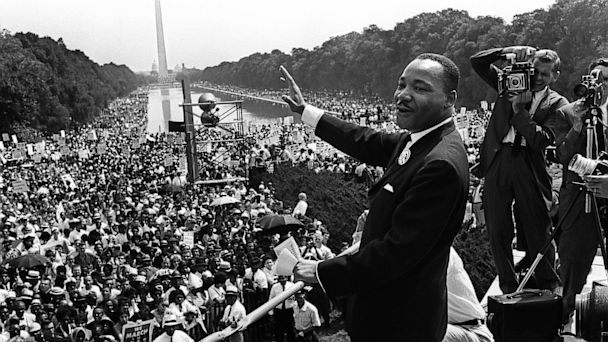 In the South the civil rights struggle burst with youthful energy to demand our civic freedoms as citizens of the United States. Corresponding with this struggle were the rumblings of northern urban centers as well as those of Africa, Asia, Latin America, and the Caribbean from the imperial grip of the Europeans. Dark people, brown people, began questioning the cultural hegemony of white folk. In the United States Negroes did this by becoming black. This awakening of blackness was powerful and essential. It was our way of moving from being a caste group in the country toward becoming citizens. From within the definitional crisis of blackness arose the theological question of what it means to be an African-American Christian. African-American theologians and a few well-placed pastors began to urge white seminaries to take seriously the study of African-American Christian tradition(s). Church after church ceased to call the way black folk worshiped in the cultural matter they do “ignorant”; it was something to be proud of and worthy of academic reflection.
In the South the civil rights struggle burst with youthful energy to demand our civic freedoms as citizens of the United States. Corresponding with this struggle were the rumblings of northern urban centers as well as those of Africa, Asia, Latin America, and the Caribbean from the imperial grip of the Europeans. Dark people, brown people, began questioning the cultural hegemony of white folk. In the United States Negroes did this by becoming black. This awakening of blackness was powerful and essential. It was our way of moving from being a caste group in the country toward becoming citizens. From within the definitional crisis of blackness arose the theological question of what it means to be an African-American Christian. African-American theologians and a few well-placed pastors began to urge white seminaries to take seriously the study of African-American Christian tradition(s). Church after church ceased to call the way black folk worshiped in the cultural matter they do “ignorant”; it was something to be proud of and worthy of academic reflection.
For the average, ordinary, church-going member in the Presbyterian Church, however, there were several tensions. The first was that the youthful excitement over the black awakening celebrated urban, male street culture as the essence of what it meant to be black. African-American Presbyterians were middle class, or hoping to be so, and on average more formally educated than other African Americans. The question being asked of African-American Presbyterians was, How can you be middle class and truly black? It was a question born of ignorance, nevertheless an important question to ask. How could we as black, middle-class parishioners address the spiritual and social life of many of the black masses who were not middle class and who did not aspire to become middle class if that meant being white?
___________________________________________
How do we creatively fuse the teachings of slave religion and many of the nobler teachings found in Calvinism?
___________________________________________
The second question asked of us was, How can you be black and not be part of the historically black denominations? This question was put in derogatory terms such as, How could you be in the slave masters’ church? That was another important question that we ourselves in the church had not fully resolved or contemplated. Unknown to many of our inquisitors was the history of several of the nineteenth-century African-American Presbyterian clergy who were radical abolitionists and distinguished community leaders, a history attributable partly to worldly activism found in the Reformed-Presbyterian theological heritage. Further, African-American Presbyterians pushed our denominational leaders to support the civil rights struggle financially and spiritually since the first Jim Crow laws were passed. When Eugene Carson Blake, the former stated clerk of the Presbyterian church, spoke at the 1963 march on Washington he did not do so purely out of a benevolent conscience but at the urging of African-American Presbyterians. Even with our noble civil rights involvement we did not know how to resolve the dilemma of being a marginal part of what was formerly the slave-masters’ church. How could we worship in this church?
 The black awakening pointed to the third and most important tension: that culturally our congregations did not feel fully indigenous to their settings. We sang European hymnody with no more enthusiasm than did the Europeans, and while our clergy were on average far better educated than most of our African-American counterparts in other churches, many did not preach in a culturally vigorous manner. In many ways the cultural revolution of black consciousness left us African-American Presbyterians feeling insecure. No longer was status accorded us because an African-American person claimed to be Presbyterian. The revolution in black consciousness (a consciousness aided in its popularization by James Brown’s lyrics “Say it loud, I’m Black and I’m Proud”) tore down the myth that to be Presbyterian was somehow to step up from all those other black folk.
The black awakening pointed to the third and most important tension: that culturally our congregations did not feel fully indigenous to their settings. We sang European hymnody with no more enthusiasm than did the Europeans, and while our clergy were on average far better educated than most of our African-American counterparts in other churches, many did not preach in a culturally vigorous manner. In many ways the cultural revolution of black consciousness left us African-American Presbyterians feeling insecure. No longer was status accorded us because an African-American person claimed to be Presbyterian. The revolution in black consciousness (a consciousness aided in its popularization by James Brown’s lyrics “Say it loud, I’m Black and I’m Proud”) tore down the myth that to be Presbyterian was somehow to step up from all those other black folk.
In light of the revolution, many younger African-American clergy like myself, informed by black theology, left our seminaries trying to push older, middle-class congregations to be what we thought was authentically black, only to find that our churches pushed back. Some of these congregations were comfortable in their old elitism that Presbyterianism was better than the historical African-American denominations simply on the basis that it originated in Europe. Quite a few of these congregations were left with members who had formed their self-identity prior to black consciousness. In our eagerness to revolutionize these congregations we failed to note that some of the black folk who joined the Presbyterian church had done so not to escape their cultural identity but to gain a deeper spirituality that they felt had been missing in their lives. We forgot at times that these same folk wanted us to teach them how to pray. They wanted us to teach how the Scripture made sense and what authentic holiness really meant. Our easy castigation of these folks in these congregations as just a load of “wanna be’s” (wanna be white) was arrogant and far too simple-minded!
___________________________________________
We must grapple with our marginality of being African Americans amid a tradition that has taken on the trappings of power, while a good number of our folk feel, and sometimes desperately are, powerless and destitute.
___________________________________________
Herein lies the great tragedy of the Reformed-Presbyterian heritage and of African Americans. Those of us born of black consciousness dismissed the Reformed heritage as bourgeois religion, used to subject our forebears into slavery and to legitimize the continual oppression of blacks in the United States, a belief that has some truth. We dismissed much of the Reformed-Presbyterian tradition as irrelevant to the lives of African Americans alongside whom we wished to minister in our continual struggle for civic, cultural, and personal freedom. It was not so much an overt dismissal lest we not meet the standards for ordination. It was a dismissal in attitude; let’s give these white folk the answers they want to hear and let us go to our folk and tell them what they need to hear! Let them call themselves depraved; we are not depraved, we are oppressed! Because the theological discussion regarding the Reformed-Presbyterian heritage was taught in a culturally, politically, and sexually hegemonic fashion we could not see that the spirituality of the Reformers was a response relative to their circumstances, which if learned dialectically in connection with our own struggle might offer some valuable truth to us and to our congregations wishing to learn how to pray.
 But if we are to come to some kind of reconciliation with our history as Americans both from the aspects of being the great grandchildren of slaves, now citizens, and Christians, we must wrestle much more deeply with the strengths and the weaknesses of the Reformed-Presbyterian heritage. Here are only a few of the interrelated questions we must contemplate. How did our forebears uniquely incorporate many of the iconoclastic features of this tradition to free us, and how have many of the teachings of the tradition subverted our striving to become a godly people? How do we creatively fuse the teachings of slave religion and many of the nobler teachings found in Calvinism? Can we in the African-American theological community express the varying understandings of God without falling into the neo-scholastic didacticism and tendentious doctrinal hair-splitting so heavily a part of the Reformed-Presbyterian tradition? On the other hand, how do we incorporate a vision of the intellect as a necessary and vital part of being religious in our own people? We must grapple with these questions to name the sin of our racist past. We must grapple with our marginality of being African Americans amid a tradition that has taken on the trappings of power, while a good number of our folk feel, and sometimes desperately are, powerless and destitute. We must grapple with these questions most importantly so that we might renew worship in our congregations that are struggle for answers about being God’s own in the world.
But if we are to come to some kind of reconciliation with our history as Americans both from the aspects of being the great grandchildren of slaves, now citizens, and Christians, we must wrestle much more deeply with the strengths and the weaknesses of the Reformed-Presbyterian heritage. Here are only a few of the interrelated questions we must contemplate. How did our forebears uniquely incorporate many of the iconoclastic features of this tradition to free us, and how have many of the teachings of the tradition subverted our striving to become a godly people? How do we creatively fuse the teachings of slave religion and many of the nobler teachings found in Calvinism? Can we in the African-American theological community express the varying understandings of God without falling into the neo-scholastic didacticism and tendentious doctrinal hair-splitting so heavily a part of the Reformed-Presbyterian tradition? On the other hand, how do we incorporate a vision of the intellect as a necessary and vital part of being religious in our own people? We must grapple with these questions to name the sin of our racist past. We must grapple with our marginality of being African Americans amid a tradition that has taken on the trappings of power, while a good number of our folk feel, and sometimes desperately are, powerless and destitute. We must grapple with these questions most importantly so that we might renew worship in our congregations that are struggle for answers about being God’s own in the world.
That night at First Presbyterian I realized that I would always have feelings of discontent in my chosen church. I mourn frequently because I do not have what I perceive as the cultural homogeneousness of the black church. On the night I became a candidate for ministry I did not understand that I would always mourn this loss. I am not alone in my grief; I hold it in common with the grief of my generation of African Americans who have attained middle-class status and are moving in realms unknown to our forebears and outside the confines of the traditional communal institutions that nurtured us. Yet, I am proud to be a Presbyterian. It has been my privilege to serve and to have access to structures that have allowed me to share the gospel in lands and with people who are more politically and socially marginalized than I ever can claim to have experienced in the United States. I am proud to be in a denomination that takes its theological heritage seriously and wrestles with it. And although I dislike being culturally marginal in the church, the irony of history is that the denomination needs the cultural and spiritual presence of my generation of African Americans to shed the denomination’s negative elitist and racist past so as to reinvigorate the life of worship in the church as a whole. I do not know if the church is prepared to hear this message now, but eventually it must hear or die. As I think back to that night at First Presbyterian, I realize how much God was in that building calling me and my church to build up the body of Christ.
*****
AUTHOR BIO: Randal Maurice Jelks is an ordained teaching elder in the PC(USA), an award-winning author, and Professor of American Studies and African and African American Studies at the University of Kansas. Professor Jelks also holds courtesy appointments in History, Religious Studies, and is the co-Editor of the academic journal American Studies.
Read more articles in this issue Call to Confession: Race, White Privilege and the Church!

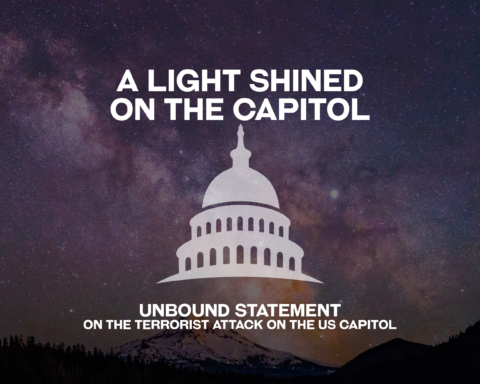

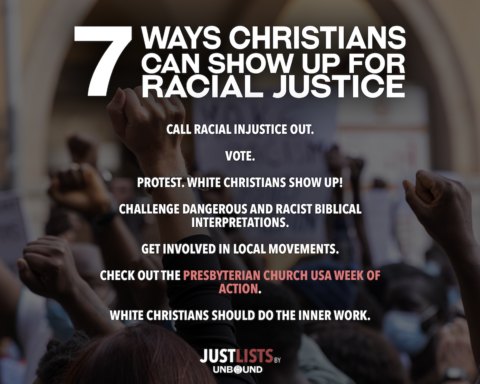
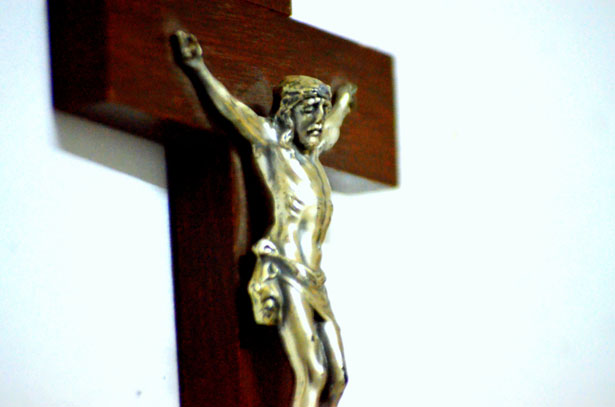
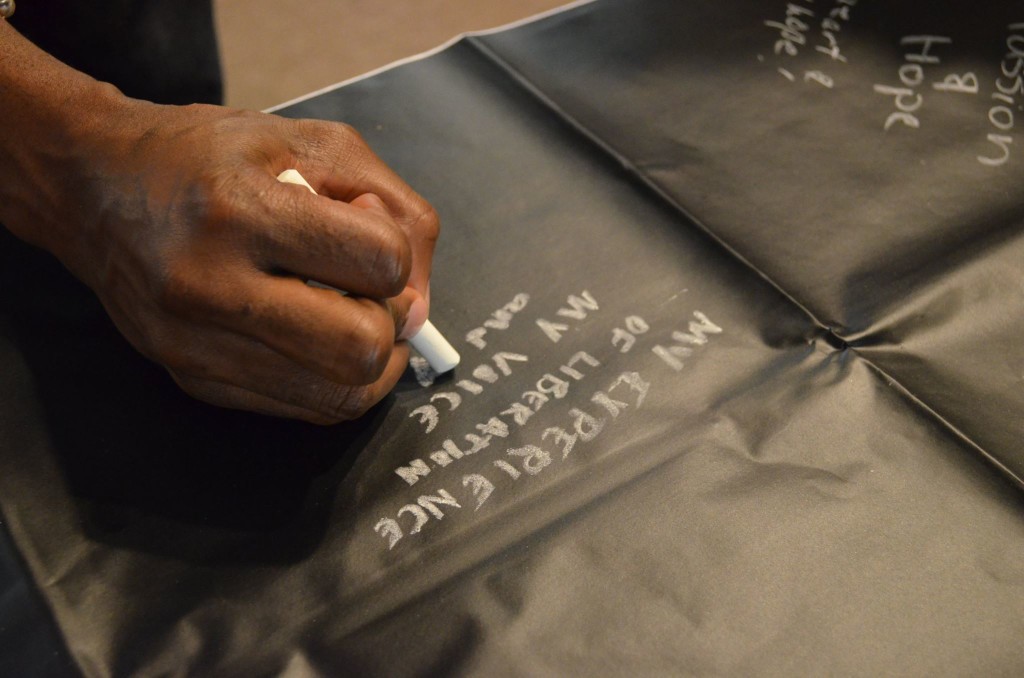
Unbound Social